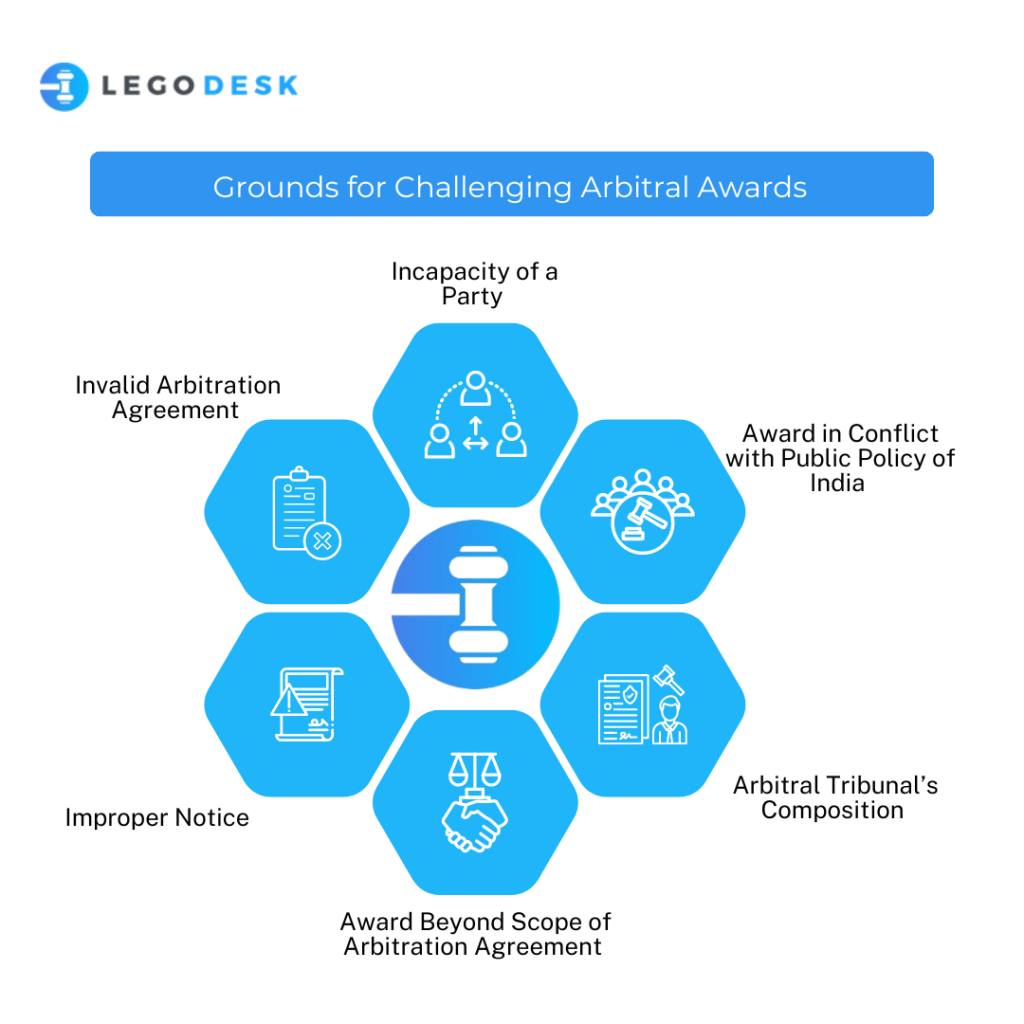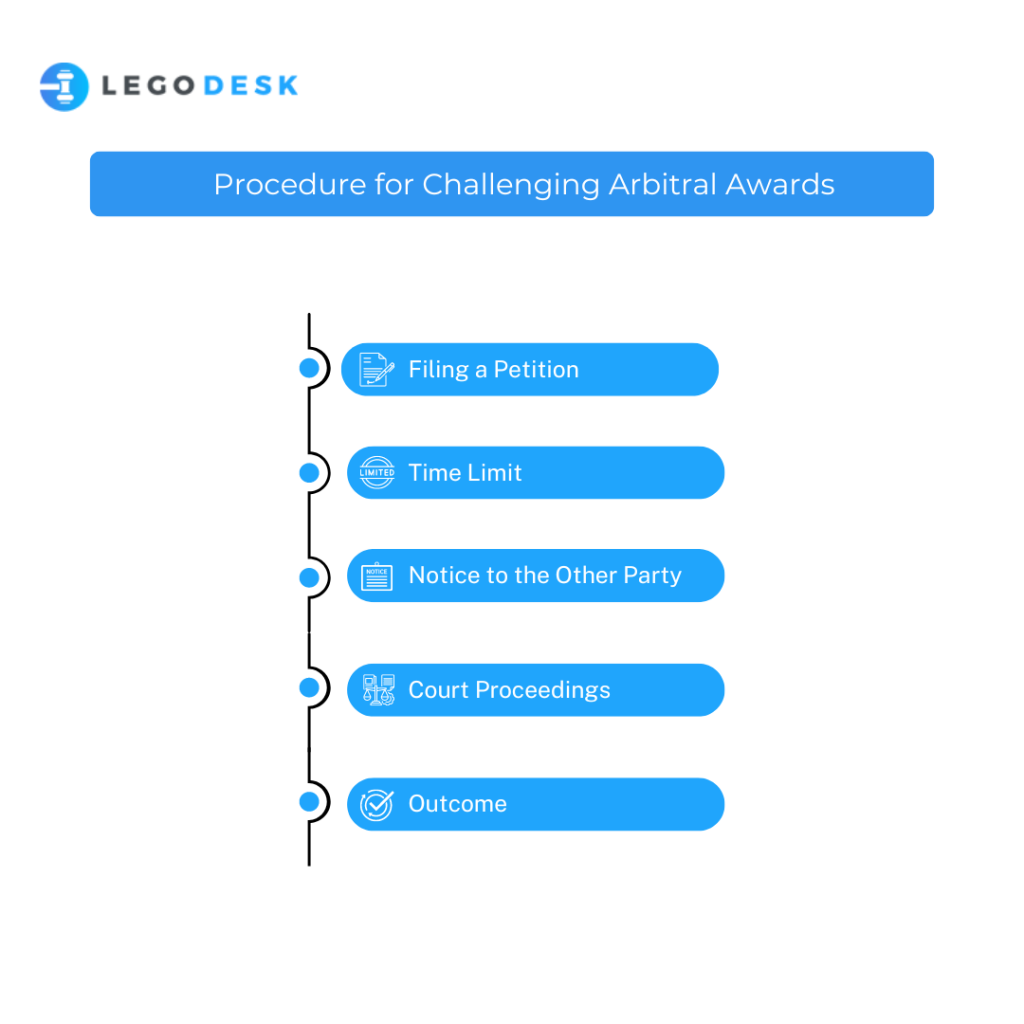Grounds for Setting Aside an Arbitral Award: A Detailed Examination
Many lenders and enterprises prefer arbitration as a means of dispute resolution compared to relying on the courts of law of India. Arbitration can be much more efficient and is a completely confidential process that appeals to corporations disputing the consequences of a contract or agreement.
Arbitration in India is governed by the Arbitration and Conciliation Act, 1996 (we’ll refer to this Act as “the Act” going forward in this article). According to the Act, the final award which the arbitrators decide upon is not absolute. It can be challenged. However, the challenge must be for any one of a few specific reasons. Each of the grounds based on which an arbitral award can be challenged in Court has been laid down in the Act.
Let’s take a look at the grounds for challenging arbitral awards in India and the procedure to do so.
Grounds for Challenging Arbitral Awards

The Act provides for the grounds of challenging arbitral awards and these are largely in line with international standards. This makes it clear that awards can only be set aside in case there are significant legal procedural oversights.
Incapacity of a Party
An arbitration award can be completely set aside in case it can be proved that one of the parties that entered into the agreement which was the subject of the arbitration, did not have the capacity to enter into the agreement.
This means that the agreement itself was not legally binding on the parties since one of the parties did not have sufficient capacity to enter into the agreement.
Incapacity of the party usually arises when agreements are international in nature with parties from various countries and the incapacity may arise due to the legal scenario in the legal seat of the agreement.
Invalid Arbitration Agreement
Another ground for setting aside an arbitration agreement is when the agreement itself was not valid. If the agreement was not valid, then it goes without saying that no contractual obligations can stem from the agreement.
An agreement may be invalid for a plethora of reasons such as the object of the agreement was not legal or there was no sufficient consideration that was provided for in the agreement.
Improper Notice or Inability to Present a Case
One of the primary principles of law in India is the principle of natural justice. This principle holds that all parties to a dispute must be heard and they must have the opportunity to present their case.
/’,https://legodesk.com/legopedia/conduct-of-proceedings-international-commercial-arbitration/\Hence, if an arbitration proceedin
but one or more of the parties to the proceedings did not have sufficient opportunity to present their case, then the entire proceeding can be deemed to be invalid.
Award Beyond Scope of Arbitration Agreement
An arbitral award always needs to be strictly within the bounds of the arbitration agreement. The entire jurisdiction of the arbitral tribunal stems from the agreement itself. Hence, their award cannot go beyond the scope of the agreement itself.
In case an arbitration award obliges a party to the contract to take steps that go beyond the scope of the agreement, such an award can be challenged in court and is liable to be set aside.
Arbitral Tribunal’s Composition or Procedure Not in Accordance with Agreement
The arbitral tribunal can only be formed on the basis of the agreement. The jurisdiction of the arbitral tribunal arises from the agreement. In case the letter of the agreement is not followed while constituting the arbitral tribunal, then such agreements are liable to be set aside. This is because the said tribunal is not valid and cannot have the force of law.
Award in Conflict with Public Policy of India
Any award that is made by an arbitral tribunal must be in line with public policy in India. In case the award has any effect that goes against the existing public policy of India, then the courts can set aside that portion or the entire arbitral award on the grounds that it the award is in conflict with the public policy of India. What constitutes the public policy of India and whether that has been breached will be decided by the courts of India.
Procedure for Challenging Arbitral Awards
A procedure has been laid down in the Act for challenging arbitral awards. This procedure must be followed by the party which is challenging the award.

Filing a Petition
A petition must be filed before a court of law that has appropriate jurisdiction to hear the matter. This petition, amongst other things, must clearly lay down why the arbitral award is being challenged and the facts of the matter.
Time Limit
A time limit of three months has been imposed on the process. The party that is challenging the award must do so within a period of three months from the date of receiving the award.
Notice to the Other Party
A notice must be provided to the other party when an arbitral award is being challenged. The opportunity for them to present their case must be provided.
Court Proceedings
Once a petition has been properly submitted and all relevant processes have been followed, the relevant court will begin the hearings to adjudicate on the matter. The court will not judge the arbitral award on its merits or substitute its own views on the matter.
Outcome
In case the court decides that the challenge is valid, it can set aside the whole arbitration award or a part of the award. Otherwise, it can invalidate the challenge and uphold the arbitral award.
Wrapping Up
The Act has provided for several grounds on which an arbitral award can be challenged in a court of law in India.
However, it has been observed that the scope for challenge is quite limited and the arbitral award cannot be challenged based on the merits of the matter.
This is a deliberate feature of arbitration in India to preserve the sanctity of an arbitral award.